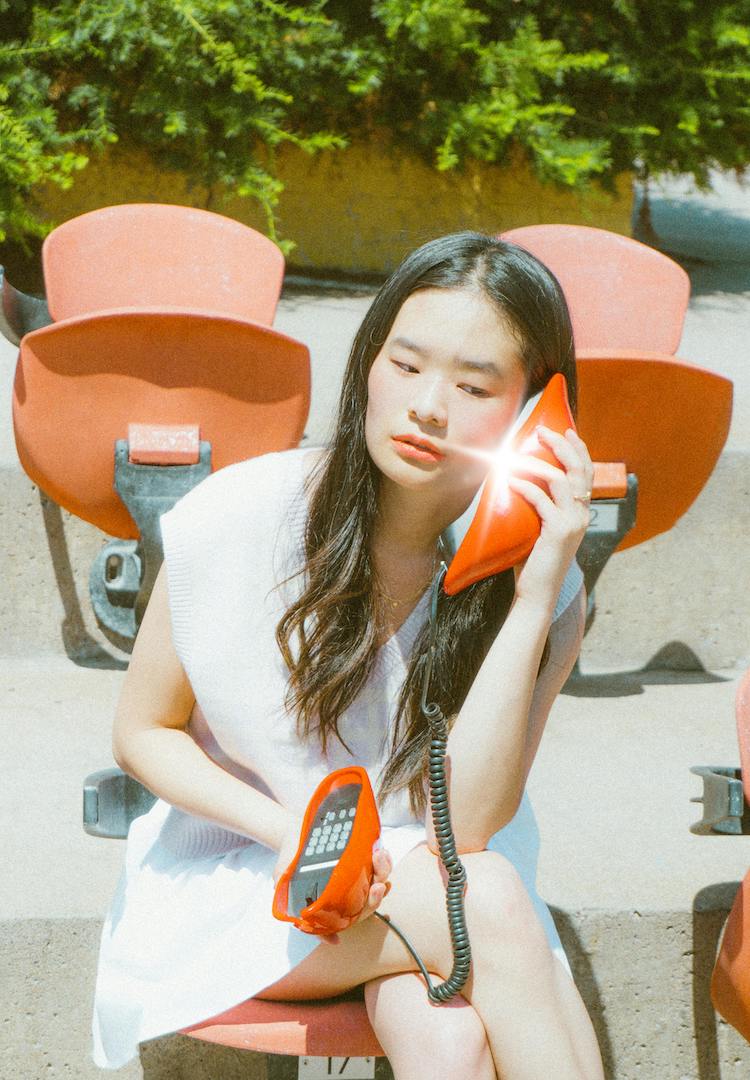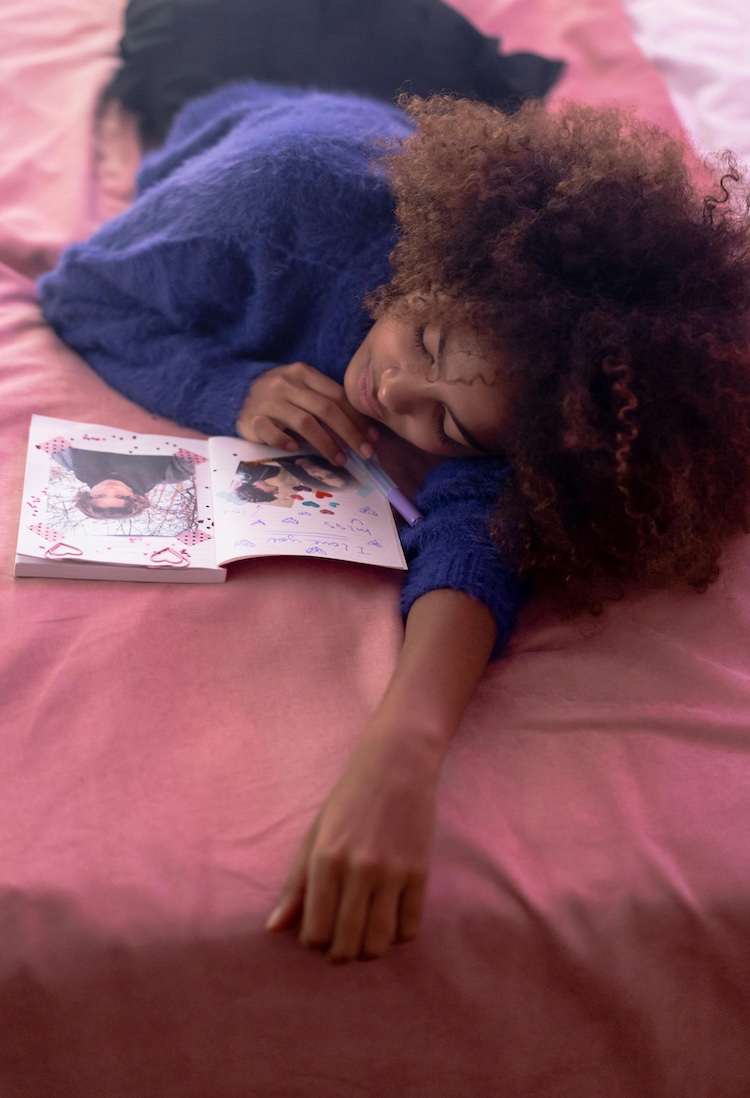Can introverts and extroverts work well in romantic relationships?
WORDS BY NINA Miyashita
“Sure, it might be easier in some senses to be with someone with the same social behaviours as you. But you learn so much more about patience and generosity this way.”
It would only take you a few minutes talking to me and my boyfriend to see it: I’m a full-blown introvert, and he’s the definition of an extrovert. While I sit in the car trying to hype myself up for the party, he’s already at the bar ordering everyone’s first round.
When I feel the slightest bit tired or low, I sink into bed with a book. When he’s down, he calls his friends around for dinner. We couldn’t be more opposite in this sense. And even though they say opposites attract, opposites face a lot of interpersonal challenges too. We’ve successfully made it work, even living in the same house, for over three years.
For more content like this, tap through to our Life section.
But it hasn’t always been easy. When we first started to realise our personality clash might be problematic, we tried to push it aside. I would continually go out with a depleted social battery, and he would stay in even if he was desperate to be somewhere. We did what you were ‘supposed’ to do – we compromised.
But compromise only works when you pair it with communication. By not discussing how we were feeling, we were starting to resent each other for seemingly ‘forcing’ the other out of their comfort zone. And we’re far from the only couple who’s found themselves in this position.
Cam*, 31, and Lily*, 29, have been coping with their wildly different personality styles for a decade and it’s taken that long to reach a delicate balance. “Lily is the exact opposite of me, which made it hard to begin with,” Cam tells me. “When you constantly feel like doing different things, it can be hard to feel like you’re getting any quality time together.”
This lack of quality time is a common affliction for extrovert and introvert relationships. It can be hard to feel connected with your partner if they’ve always got one eye on the door.
“I was worried that Cam would think I didn’t want to spend time with him, or that I preferred others’ company to his,” Lily explains. “In reality, I need both. But I have to respect that Cam doesn’t want to socialise the way I do, and I can’t force him to change.”
As well as affecting their social habits, Cam’s introversion and Lily’s extroversion inform their conflict styles. While Cam prefers to introspect independently and tends to not want to address conflict straight away, Lily’s the antithesis of this.
Then there’s Elise*, 22, and Sam*, 25, who have found their differences difficult to explain to the other people in their lives. “I have a very big family, and we get together quite often,” Elise tells me. “Sam absolutely loves them, but her social battery runs out quickly. After a few hours at a long, loud lunch, she can get pretty exhausted.”
What might have been perceived by Elise and Elise’s family as Sam being unfriendly and shy was just a signal that Sam needed time to re-energise. Sam says she struggled to explain that it wasn’t anything personal. “It was hardest in the early days of dating,” she explains. “You just want to make a good first impression. I didn’t want them to think I didn’t like them!
“People overgeneralise and believe that introverts are inherently anti-social. Instead, my introvert-ism refers to how I need to recharge and relax in order to be social. I still want to connect with people, like Lily does, just in a different way.”
So how do you make these two different styles work in a relationship?
The first obvious answer is to clearly define your independence. You carve out and designate time just for yourself to do as you please, without your partner/s. This is a process of reversing any unhelpful codependency that may have developed, and working out how to be both your own person and a partner at the same time.
In the case of me and my partner, we consciously choose to let go of any residual guilt or resentment. In doing so, we don’t just allow each other to do our own thing – we do it happily. Cam and Lily have found that the best method for establishing independence and still staying connected is actually scheduling how they spend their time.
“The day can change depending on our commitments, but we spend one night each week doing completely separate things and one night where we spend some real, quality time together,” Lily explains. “And this night alternates each week as either going out or staying in.”
Cam and Lily say that being able to put a certain amount of discomfort aside to be there for the other is important but it shouldn’t feel forced.
“We found the best way to not feel like one person was getting more than the other was to literally plan it out,” Cam says. “It may seem a bit boring and structured, but sometimes a bit of old-fashioned timetabling is necessary for the health of a relationship.”
As for conflict, it all comes down to Lily understanding Cam needs space to process on his own and that his silence doesn’t mean he doesn’t love her. Over time, Lily even found that slowing down was a good discipline for herself too.
“It might be a cliche, but at the end of the day, we make a good team,” Lily says. “Sure, it might be easier in some senses to be with someone with the same social behaviours as you. But you learn so much more about patience and generosity this way.”
Elise and Sam have also found a unique rhythm of give and take that keeps their relationship healthy. They often set up goals for each social situation they plan to be in so that both their needs are met and neither of them ends up over their threshold.
“We look at each situation, assess our needs, and then decide. We might say that we’ll stay until Elise feels she’s had a good conversation with each person there, or we’ll go 10 minutes before I start to fade,” Sam explains. “We take it in turns, and it keeps us feeling equally cared for.”
The couple also decides to see the beauty in each other’s traits, however different they may be. In fact, the difference might be what makes it so special.
“Instead of looking at it as something that can annoy me, I look at it as one of the many reasons I love her,” Elise says. “Her introversion makes her considered, thoughtful, and empathetic.
“And I love how Elise just lights up a room,” Sam adds. If you treat it with care, the extrovert and introvert combination in a relationship can be powerful, and incredibly complementary. It can teach you a number of virtues, challenge you to be the best version of yourself, and showcase the ways in which you are unique.
It’s certainly something I’ve found after all this time with my partner – my weaknesses are his strengths and vice versa. We’re always looking out for each other’s well-being. So even though we couldn’t be more different, it’s possible my extroverted boyfriend knows me and my introverted ways better than anyone I know.
This article was originally published on March 7, 2023.
For more advice on making extrovert/introvert relationships work, try this.













